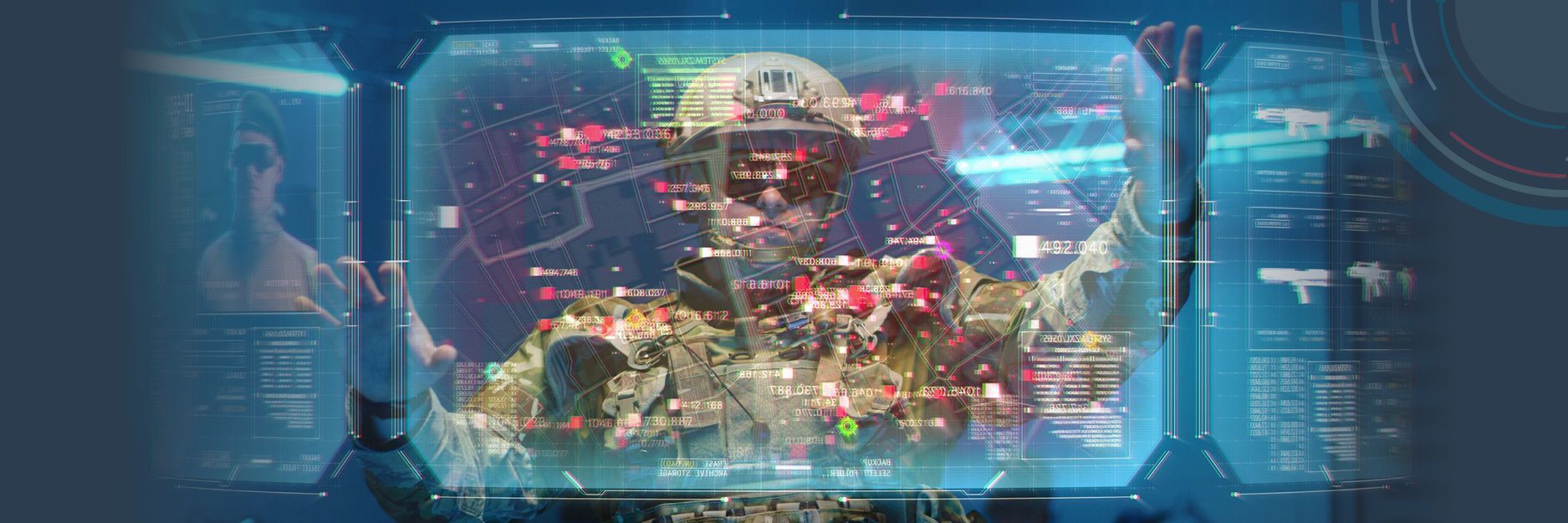Charting AI capability to coexist with maritime competency
10 Apr 2024
DisTec Theatre
To benefit fully maritime must adopt, upskill and scale the use of both new and existing technology by becoming champions of human-centred digital transformation. Going forward we should empower maritime workers with new skills to work alongside technology performing shared tasks and using shared decision-making when necessary. We are much too obsessed with replacing humans when we should be more obsessed with making superhuman technology partnerships. We see this as an emancipatory concern placing ethics at the centre of the adoption and use of AI.
Maritime Remote Operations: A Key Use Case for the Development of Human-Machine Team Competencies Remote Operations are used for beneficial services such as pipeline surveying, or conducting mine countermeasure operations. However, in the first wave of roll-outs, the operation process has largely been replicated from the ship to the shore. In other words, remote operators approach tasks in the same way they would aboard a ship, and the thinking around remote functionalities are as though they are the same as on ships. However, in remote operations, there are new opportunities for analytical tools, in combination with cyber-physical systems to deliver objective, repeatable actions, with the human working in, on and off the loop.
Furthermore, significant safety and inclusion risks have not adequately been addressed in the first wave of roll-outs either.
Three Provocations for the Development of a Human-Machine Team Competency Framework
1. We should start out by unpicking fundamental tasks and the decision-making
in tasks is where we should be starting so that we understand the competencies and enhance these using AI and digital media. What are the fundamental tasks of human-machine teams in remote operations that we should concentrate on?
2. Human-machine team competencies are not just limited to skills and
knowledge, but also the attributes and values required to perform roles placing people with responsibility for safety-critical roles. What are the skills, knowledge and attributes of human-machine teams that take on safety-critical roles?
3. Human-machine teams must also operate at different timescales and levels
of action and reflection to ensure that skills, knowledge and attributes lead to responsible and accountable system behaviours. What are the appropriate timescales, and governance roles.
Through a collaborative approach, utilising a Delphi Method to leverage the insights of industry experts internationally, we aim to identify the essential skills, knowledge, and attributes required for individuals to thrive in human-machine team environments.
Maritime Remote Operations: A Key Use Case for the Development of Human-Machine Team Competencies Remote Operations are used for beneficial services such as pipeline surveying, or conducting mine countermeasure operations. However, in the first wave of roll-outs, the operation process has largely been replicated from the ship to the shore. In other words, remote operators approach tasks in the same way they would aboard a ship, and the thinking around remote functionalities are as though they are the same as on ships. However, in remote operations, there are new opportunities for analytical tools, in combination with cyber-physical systems to deliver objective, repeatable actions, with the human working in, on and off the loop.
Furthermore, significant safety and inclusion risks have not adequately been addressed in the first wave of roll-outs either.
Three Provocations for the Development of a Human-Machine Team Competency Framework
1. We should start out by unpicking fundamental tasks and the decision-making
in tasks is where we should be starting so that we understand the competencies and enhance these using AI and digital media. What are the fundamental tasks of human-machine teams in remote operations that we should concentrate on?
2. Human-machine team competencies are not just limited to skills and
knowledge, but also the attributes and values required to perform roles placing people with responsibility for safety-critical roles. What are the skills, knowledge and attributes of human-machine teams that take on safety-critical roles?
3. Human-machine teams must also operate at different timescales and levels
of action and reflection to ensure that skills, knowledge and attributes lead to responsible and accountable system behaviours. What are the appropriate timescales, and governance roles.
Through a collaborative approach, utilising a Delphi Method to leverage the insights of industry experts internationally, we aim to identify the essential skills, knowledge, and attributes required for individuals to thrive in human-machine team environments.


